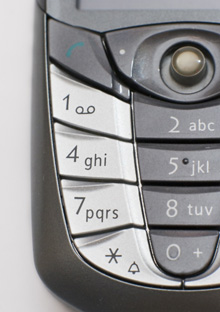In Case of Emergency...

Photo: © 2009 Jupiterimages Corporation
If an accident leaves you unconscious or unresponsive, paramedics and emergency room doctors will first look through your wallet for your emergency contact number and medical history. "But only two out of ten people carry a medical card," says Matthew Levy, national director of the International Association of EMTs and Paramedics. The next place a medic might look? Your cell phone's address book: for ICE—which stands for In Case of Emergency.
First used in the UK, ICE has been catching on across the pond, as well. "It's simple, and it costs nothing," says Levy. Just put contact information for the person you want making medical decisions under ICE in your cell phone. (And for good measure, keep it on a card in your wallet.) If your phone allows it, include a text memo about any special conditions or allergies. iPhone owners can download an ICE program that stores contacts, special concerns, and the names of any drugs they may be taking.
For people with chronic health problems, the Emergency Service Profile at MyRapidMD.com might be a wise choice. At the site, you can enter emergency contacts, medical history, medication, and blood type, among other details, and they will be sent to your phone. You'll also get reminders to update the information regularly to reflect changes in your health
Next: Use this worksheet to organize your vital documents
First used in the UK, ICE has been catching on across the pond, as well. "It's simple, and it costs nothing," says Levy. Just put contact information for the person you want making medical decisions under ICE in your cell phone. (And for good measure, keep it on a card in your wallet.) If your phone allows it, include a text memo about any special conditions or allergies. iPhone owners can download an ICE program that stores contacts, special concerns, and the names of any drugs they may be taking.
For people with chronic health problems, the Emergency Service Profile at MyRapidMD.com might be a wise choice. At the site, you can enter emergency contacts, medical history, medication, and blood type, among other details, and they will be sent to your phone. You'll also get reminders to update the information regularly to reflect changes in your health
Next: Use this worksheet to organize your vital documents



